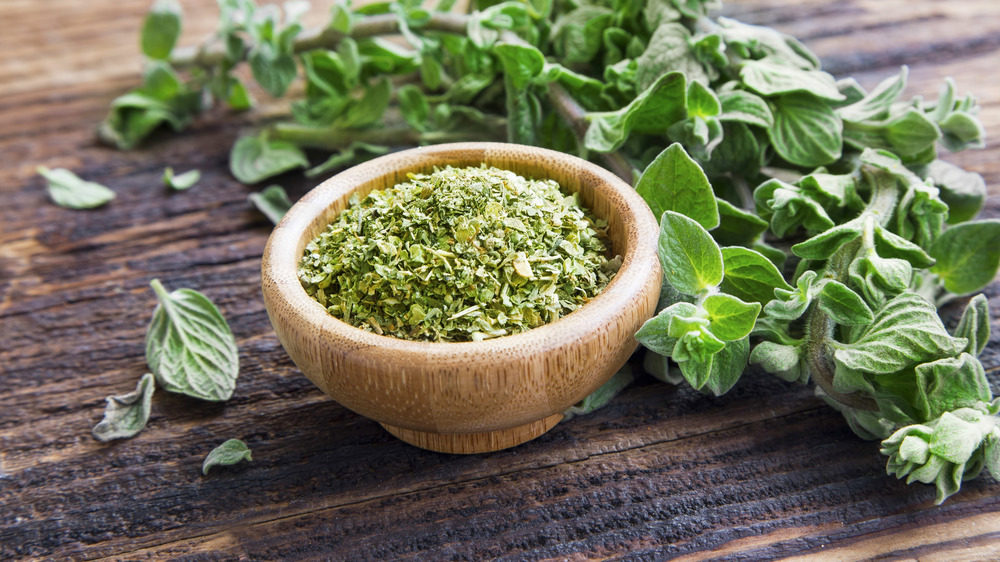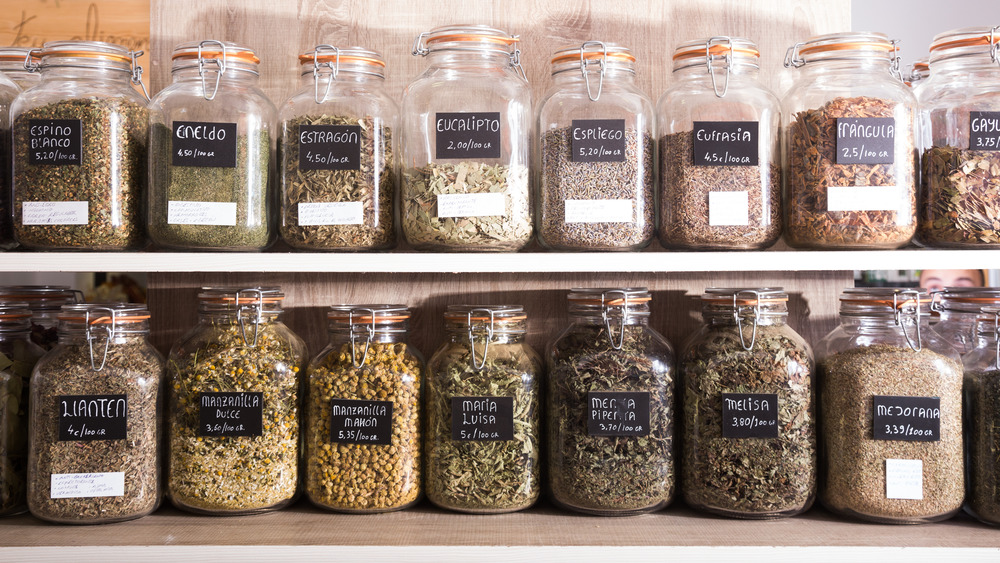How To Substitute Dried Herbs For Fresh
We may receive a commission on purchases made from links.
We all love fresh herbs. They are fragrant, aromatic, and just taste better in our opinion, especially when a recipe calls for green basil or sweet smelling oregano or mint. So, instead of heading to the pantry to grab the dried version of these flavor-enhancing greens, opt for the fresh. But when can you use fresh herbs in place of dried? This question leaves many of us wondering how it will it affect the overall flavor of our meal. After all, getting the seasoning right for your favorite dishes can make or break it for your taste buds. Luckily, when you find yourself facing this substitution dilemma, there's a handy rule some cooking god created to take the guess work out of the whole process.
Martha Stewart notes that when you find yourself in the predicament of wanting to substitute fresh herbs for dried, you can use the handy dandy one tablespoon of fresh herbs to one teaspoon of dried herbs rule. For example, if a recipe calls for one teaspoon of dried rosemary, you will need to use one tablespoon when cooking with fresh rosemary. It does require a little bit of math when the quantities are not that simple, but don't worry, there's a conversion chart for such things. This will become less intimidating the more you use it until you know it by heart. But there are a few things to keep in mind when substituting dried herbs for fresh.
Things to consider when converting dried herbs to fresh
Martha Stewart explains that when using fresh herbs, it is important to remember that dried herbs pack a bigger punch than their fresh counterparts, however, the article also warns that you can always put more herbs in, but you can't take them out, so be conservative and taste as you cook to ensure your flavor is how you like it.
The Reluctant Gourmet also shares that there are always exceptions to rules, and when you are substituting fresh herbs for dried there a couple of exceptions. One of these is with ginger. Dried ginger is more powerful with its flavor, and when you substitute dried for fresh ginger you will measure out one-fourth the amount the recipe calls for. So, if you are substituting fresh ginger for dried, you will want to use three quarters more fresh ginger than you would dried. Bay leaves are also an exception to this rule because they lose their flavor quickly when dried. The rule is to use two dried bay leaves for every fresh bay leaf, so, if you are substituting fresh bay leaves for dried, you will want to half the amount called for in a recipe.

